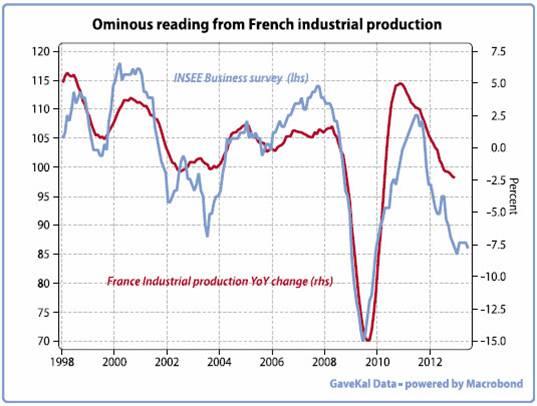The French private sector experienced a notable contraction in activity for the second consecutive month in June, according to the latest Purchasing ManagersŌĆÖ Index (PMI) data released on Wednesday. The decline underscores ongoing economic headwinds facing EuropeŌĆÖs second-largest economy, as businesses grapple with persistent inflationary pressures, supply chain disruptions, and weakening demand. Analysts warn that the subdued performance may signal a fragile outlook for the coming months, raising concerns over FranceŌĆÖs growth prospects amid a challenging global landscape.
French Private Sector Activity Declines Sharply in June Amid Economic Challenges
The latest Purchasing Managers’ Index (PMI) for June reveals a significant downturn in France’s private sector, marking a further contraction driven by persistent economic headwinds. Both manufacturing and services sectors registered declines, reflecting heightened business uncertainty and dampened demand. Notably, supply chain disruptions and rising costs have exacerbated the strain on companies, leading many to scale back production and delay investment plans.
Key factors influencing the downturn include:
- Inflationary pressures increasing operational expenses
- Weak consumer confidence limiting spending
- Geopolitical tensions impacting export markets
- Labor shortages constraining productivity
| Sector | June PMI | May PMI | Change |
|---|---|---|---|
| Manufacturing | 47.2 | 48.0 | ŌłÆ0.8 |
| Services | 48.5 | 49.1 | ŌłÆ0.6 |
| Overall Private Sector | 47.8 | 48.5 | ŌłÆ0.7 |
Manufacturing and Services Sectors Both Show Signs of Contraction
Data from the latest Purchasing Managers’ Index (PMI) revealed a downturn across both manufacturing and services sectors, signalling a broad-based economic slowdown in France. The manufacturing sector showed a sharper decline with new orders falling steadily due to weakening demand both domestically and abroad. Supply chain disruptions have eased slightly, but cost pressures remain elevated, impacting production margins and leading to cautious inventory management among manufacturers.
Meanwhile, the services sector, traditionally more resilient, also posted contraction signs as client activity and workforce levels decreased in June. Factors such as rising inflation and tighter consumer spending have tempered service output, with sectors like hospitality and retail particularly affected. The combined effect of these declines points to a challenging economic environment ahead, underscored by the following sector-specific indicators:
- Manufacturing new orders: Declined to 48.5
- Services activity index: Dropped to 49.2
- Employment trends: Reduced hiring in both sectors
- Input prices: Remain elevated despite easing supply constraints
| Sector | PMI Reading (June) | Change from May |
|---|---|---|
| Manufacturing | 48.5 | -1.3 |
| Services | 49.2 | -0.9 |
Experts Warn of Potential Impact on Employment and Investment Levels
Industry analysts and economic experts have expressed growing concerns regarding the ongoing contraction in FranceŌĆÖs private sector activity, as indicated by the latest Purchasing Managers’ Index (PMI) data. The sustained downturn is expected to exert significant pressure on labor markets, potentially leading to slower job growth or even layoffs in certain industries. Companies are adopting a cautious stance, curbing recruitment and freezing expansion plans amid uncertainty, which could further exacerbate employment challenges.
In addition to workforce implications, investors are closely monitoring the evolving economic landscape, with many opting to delay or reduce capital expenditures. The reluctance to commit to new projects or upgrade infrastructure signals a potential slowdown in long-term investment, which could dampen economic recovery efforts. Below is a snapshot summarizing expert concerns:
| Key Impact Area | Potential Consequence |
|---|---|
| Employment | Hiring freezes, job cuts in vulnerable sectors |
| Investment | Postponed projects, reduced capital spending |
| Business Confidence | Heightened caution, decreased risk-taking |
With these trends in place, policymakers and business leaders face mounting pressure to devise strategies that can stem the negative momentum and support both job retention and investment confidence.
Policy Recommendations Focus on Stimulus Measures to Stabilize Growth
To counteract the ongoing contraction in France’s private sector activity, policymakers are urged to prioritize stimulus measures that can quickly stabilize economic growth. Emphasis is being placed on targeted fiscal injections, including increased public investment and support for small to medium-sized enterprises (SMEs), which are currently facing the brunt of the downturn. Additionally, monetary policy adjustments aimed at maintaining liquidity and encouraging lending remain critical in safeguarding fragile economic momentum.
Experts recommend a multifaceted approach that includes:
- Enhanced direct subsidies for key industries affected by reduced demand.
- Tax relief measures to boost household consumption and business confidence.
- Accelerated infrastructure projects to create employment and stimulate ancillary sectors.
| Measure | Target Sector | Expected Impact |
|---|---|---|
| Direct Subsidies | Manufacturing & Services | Short-term liquidity relief |
| Tax Incentives | Households & SMEs | Increased consumption & investment |
| Infrastructure Spending | Construction & Transport | Job creation & economic multiplier effect |
Closing Remarks
As the latest PMI data reveals a continued contraction in French private sector activity for June, economic uncertainties remain a pressing concern for policymakers and businesses alike. Market watchers will be closely monitoring upcoming economic indicators to gauge whether this downturn signals a short-term adjustment or a more prolonged period of slow growth.




